|
We can have risk estimates, but how reliable are they? (Note: this has nothing to do with PRECISION of the the estimate.) |
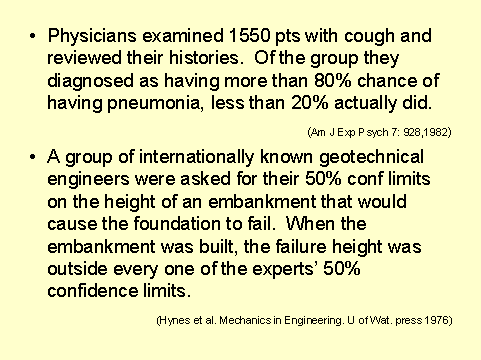
|
WE TEND TO OVERESTIMATE OUR OWN CONFIDENCE: * Length of meetings * Time to complete an assignment/job * Success rate (disregarding problems) For some reason, two groups seem to have accurate predictions: * weather forecasters * betting shop operators
|
|
Remember there are TWO main classes of errors: Type 1 errors (Rejecting the null hypothesis when it is ultimately found to be true) Type 2 errors (failing to reject the null hypothesis which is ultimately found to be false) ...... When the events are of extremely low probability and yet have disastrous consequences, we probably need to re-think the way we assess the risk; ....... -especially when we do not have the data needed for a proper risk assessment (i.e. it has never had the event happen)
|
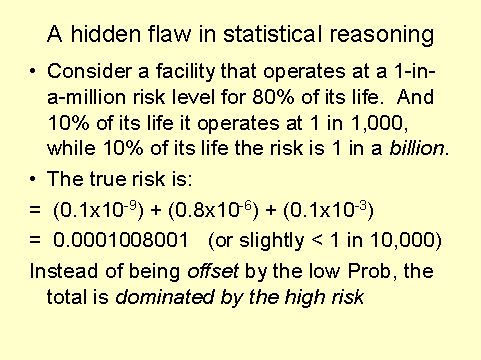
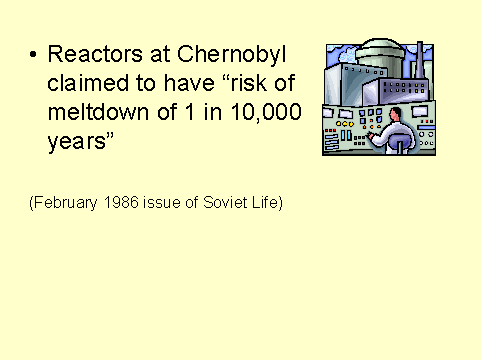
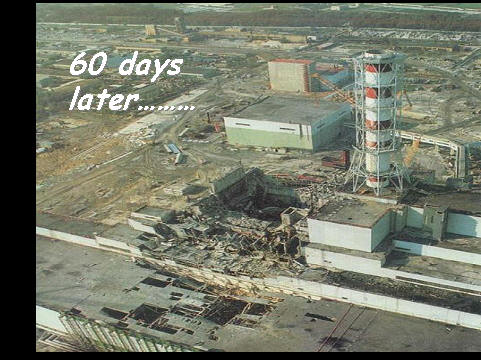
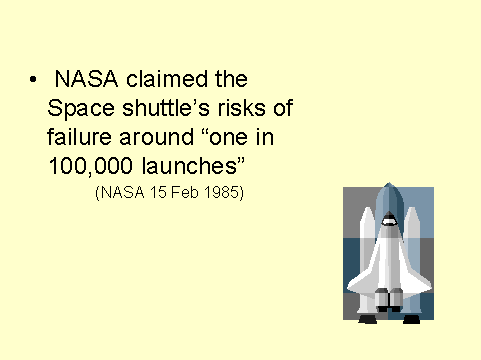
| *
Historical rates of failure of solid fuel rockets (since 1930s) were about 1
in 57 firings * A 1983 study concluded that chance of a booster rocket (there are two) failing was 1 in 70 * A 1984 USAF study reported booster rocket fail rate at 1 in 210 |
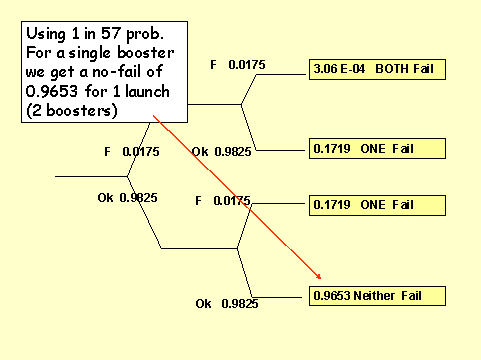
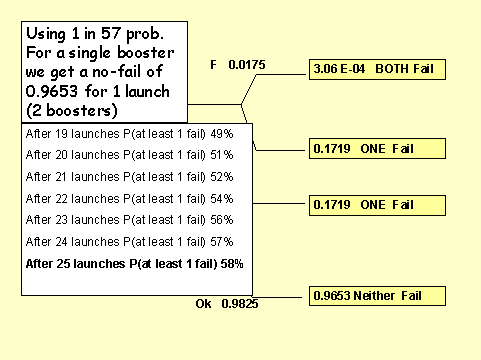
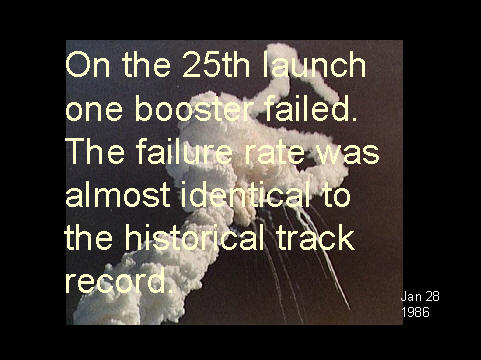
| "...
ANY SCIENTIFIC ESTIMATE IS LIKELY TO BE BASED ON INCOMPLETE KNOWLEDGE
COMBINED WITH ASSUMPTIONS, EACH OF WHICH IS A SOURCE OF UNCERTAINTY THAT
LIMITS THE ACCURACY THAT SHOULD BE ASCRIBED TO THE ESTIMATE ..."
National Academy of Sciences |